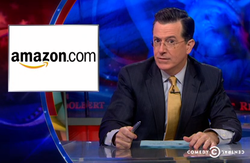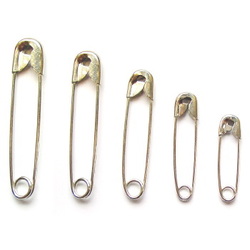
After more than a year of litigation and battling it out on social media, comedian and famed podcaster Adam Carolla has settled his case with Personal Audio LLC, the company that sued him in January 2013 for allegedly infringing on their patent for a “system for disseminating media content representing episodes in a serialized sequence.” Personal Audio considers itself to be a holding company, with their main activities being asserting and licensing the patents which they own. This very activity, coupled with the fact that they do not currently manufacture any products or services, leads many people to consider them a “patent troll.” The nonpracticing entity had initiated lawsuits against several podcasters, claiming that their patent covers all “episodic content” and therefore, others’ online distribution and queuing-up of podcast content is in direct violation of it. (Interestingly, the patent originated with Personal Audio founder Jim Logan’s decidedly less-modern mail-order cassette tape distribution model.)
The Electronic Frontier Foundation (EFF), also calling foul, filed an inter partes review back in October 2013, petitioning the US Patent and Trademark Office to invalidate the patent, pointing out, among other things, the existence of prior art which should have barred the patent from being granted in the first place. Over the last few months, Personal Audio dropped the claim against the podcasting defendants named in their lawsuit, once they understood that even Carolla, holder of the Guinness World Record for most downloaded podcast, was not making enough money off of their patent to warrant pursuing litigation in this case. At least…they tried to drop the case. In what some might perceive to be a “man bites dog” scenario, Carolla refused the offer to dismiss the suit against him, and even spearheaded an effort to take down Personal Audio, enlisting the aid of his international fan base and raising over $475,000 to help offset the legal fees involved. His stance was centered on the assumption that Personal Audio would not truly let go of this claim, but would eventually circle back if and when podcasting matures to a point of profitability.
Fearing that this posed a looming threat to the development and future business model of this growing field, Carolla—together with the parallel efforts of the EFF—decided not to go down without a fight. Brad Liddle, Personal Audio’s CEO, called Carolla’s campaign “ludicrous” and “a cynical exploitation of the publicity power he enjoys as an entertainer,” considering that he was fundraising for a lawsuit that he didn’t need to defend anymore; Liddle wondered whether Carolla was hanging on to the case just to have more fodder for his podcasts, generate sympathy and ratings, or simply to “get his fans to fund his future.”
The parties reached an agreement over the last week, and though the terms of their settlement are confidential and will likely remain under wraps until their agreed-upon “quiet period” concludes at the end of September, a number of things may be safe to assume. First, Carolla’s counterattack might just be enough to keep Personal Audio at bay (for now), and make them think twice before bullying podcasters in the future. Their very own press release specifically states that their discovery found podcasters’ profits to be so insignificant as to make it not worth litigating “over the smaller amounts of money at issue.” The existence of that documented evidence alone might be enough deterrence against would-be lawsuits targeting podcasters. Not all parties on the receiving end of a patent troll’s attention may have the fame and resources that Carolla does, but his tenacity still provides an effective lesson to those who might face similar lawsuits in the future.
Second, and perhaps more importantly, the fact that this was settled out of court deprived Carolla of the chance to actually invalidate the patent in question. Furthermore, unlike the EFF’s challenge of the patent—which, according to the USPTO, is limited to presenting evidence “based on prior art patents or printed publications”—Carolla would have had the opportunity to present a wider array of evidence to prove prior art. All this now leaves an opening for Personal Audio to try asserting this particular (and broadly-written) patent again against other parties for the remainder of their approximately two-decade hold on the intellectual property. A Carolla victory would essentially have meant a victory for the general public, who would then be able to freely use (or continue using) the technology without fear of litigation.
In the meantime, EFF’s petition is being actively reviewed by the Patent Trial and Appeal Board, which has preliminarily found that there is a “reasonable likelihood” that they will “prevail in showing unpatentability” of the claims they are challenging in Personal Audio’s so-called “podcasting patent.” Nevertheless, Personal Audio is not letting its latest dead-end with podcasters deter them from continuing their licensing efforts elsewhere. They are still targeting the big three television networks, ABC, CBS, and NBC, over their release of “episodic [video] content” on the internet. Podcasters may not have been worth their time, but in light of their past victory over Apple and other technology giants (including Samsung, Motorola and SanDisk) who are now licensees to some of the company’s patents, it is clear that Personal Audio is not afraid of pursuing “bigger fish,” particularly when their previous results have been so lucrative.
The Electronic Frontier Foundation (EFF), also calling foul, filed an inter partes review back in October 2013, petitioning the US Patent and Trademark Office to invalidate the patent, pointing out, among other things, the existence of prior art which should have barred the patent from being granted in the first place. Over the last few months, Personal Audio dropped the claim against the podcasting defendants named in their lawsuit, once they understood that even Carolla, holder of the Guinness World Record for most downloaded podcast, was not making enough money off of their patent to warrant pursuing litigation in this case. At least…they tried to drop the case. In what some might perceive to be a “man bites dog” scenario, Carolla refused the offer to dismiss the suit against him, and even spearheaded an effort to take down Personal Audio, enlisting the aid of his international fan base and raising over $475,000 to help offset the legal fees involved. His stance was centered on the assumption that Personal Audio would not truly let go of this claim, but would eventually circle back if and when podcasting matures to a point of profitability.
Fearing that this posed a looming threat to the development and future business model of this growing field, Carolla—together with the parallel efforts of the EFF—decided not to go down without a fight. Brad Liddle, Personal Audio’s CEO, called Carolla’s campaign “ludicrous” and “a cynical exploitation of the publicity power he enjoys as an entertainer,” considering that he was fundraising for a lawsuit that he didn’t need to defend anymore; Liddle wondered whether Carolla was hanging on to the case just to have more fodder for his podcasts, generate sympathy and ratings, or simply to “get his fans to fund his future.”
The parties reached an agreement over the last week, and though the terms of their settlement are confidential and will likely remain under wraps until their agreed-upon “quiet period” concludes at the end of September, a number of things may be safe to assume. First, Carolla’s counterattack might just be enough to keep Personal Audio at bay (for now), and make them think twice before bullying podcasters in the future. Their very own press release specifically states that their discovery found podcasters’ profits to be so insignificant as to make it not worth litigating “over the smaller amounts of money at issue.” The existence of that documented evidence alone might be enough deterrence against would-be lawsuits targeting podcasters. Not all parties on the receiving end of a patent troll’s attention may have the fame and resources that Carolla does, but his tenacity still provides an effective lesson to those who might face similar lawsuits in the future.
Second, and perhaps more importantly, the fact that this was settled out of court deprived Carolla of the chance to actually invalidate the patent in question. Furthermore, unlike the EFF’s challenge of the patent—which, according to the USPTO, is limited to presenting evidence “based on prior art patents or printed publications”—Carolla would have had the opportunity to present a wider array of evidence to prove prior art. All this now leaves an opening for Personal Audio to try asserting this particular (and broadly-written) patent again against other parties for the remainder of their approximately two-decade hold on the intellectual property. A Carolla victory would essentially have meant a victory for the general public, who would then be able to freely use (or continue using) the technology without fear of litigation.
In the meantime, EFF’s petition is being actively reviewed by the Patent Trial and Appeal Board, which has preliminarily found that there is a “reasonable likelihood” that they will “prevail in showing unpatentability” of the claims they are challenging in Personal Audio’s so-called “podcasting patent.” Nevertheless, Personal Audio is not letting its latest dead-end with podcasters deter them from continuing their licensing efforts elsewhere. They are still targeting the big three television networks, ABC, CBS, and NBC, over their release of “episodic [video] content” on the internet. Podcasters may not have been worth their time, but in light of their past victory over Apple and other technology giants (including Samsung, Motorola and SanDisk) who are now licensees to some of the company’s patents, it is clear that Personal Audio is not afraid of pursuing “bigger fish,” particularly when their previous results have been so lucrative.




